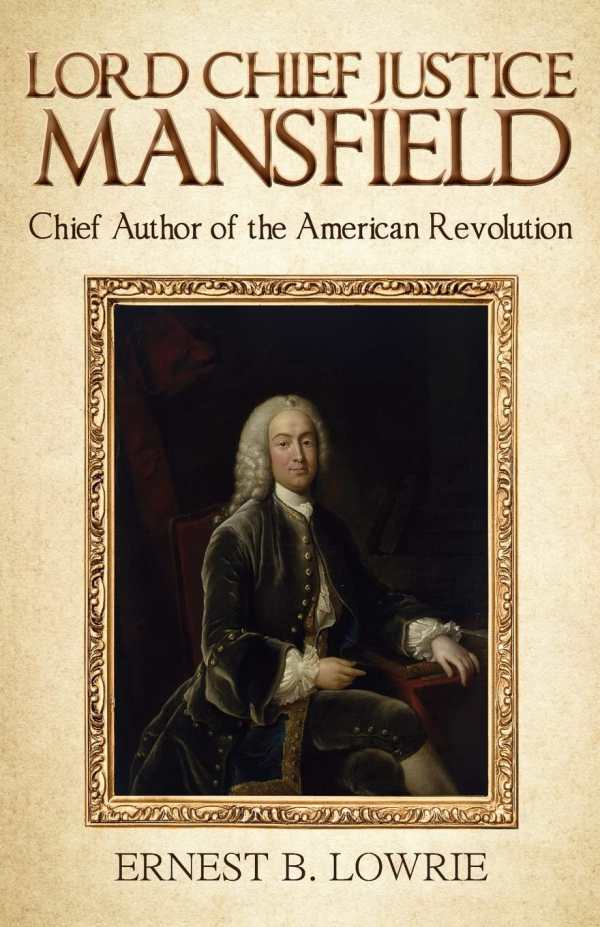Lord Chief Justice Mansfield
Chief Author of the American Revolution
Lord Chief Justice Mansfield is a spirited biography that details one man’s tremendous rhetorical influence over important events of the eighteenth century.
Historian Ernest B. Lowrie’s comprehensive biography Lord Chief Justice Mansfield is a painstaking accounting of how theory, politics, and practice came together in one man, provoking the American Revolution.
Holding a PhD from Yale University, Lowrie brings his experience in historical research to this biography of Lord Mansfield. Born William Murray in Scotland, Lord Mansfield became a prominent advisor to the English government from 1756 to 1788. Mansfield expanded on the taxation theories of earlier prime ministers who held that Parliament had the power to levy taxes on individuals “without the realm,” meaning those who populated Britain’s colonies. Theories became law and legal decisions, provoking American colonists to rebel against “taxation without representation.”
Relying on numerous primary sources, the book includes direct quotes from letters and from debates in Parliament. These are integrated into the text with grace, and they contribute to the factual basis of the book’s main argument that Mansfield, a dedicated monarchist, was “the chief architect of the American Revolution.” The primary sources also demonstrate the importance of rhetorical skill in government during the eighteenth century in England, and the commonplace, if inventive, backbiting among politicians. When Mansfield, who had a “longstanding ambition to reform the jurisprudence of England,” resigned from the House of Lords, writer and Whig politician Horace Walpole commented that Mansfield “knew it was safer to expound laws than to be exposed to them.”
The story of Lord Mansfield’s rise to power and how that power migrated across the Atlantic to the American colonies is embedded in the political turmoil of England in the latter half of the eighteenth century. The book’s pace is meticulous, if sometimes slowed by its references to the vast number of historical figures involved in this turmoil and who interacted with Mansfield. In a similar vein, the book’s complex grammatical structures, including multiclause sentences and the multiple use of negatives, obscures the logic of its individual paragraphs. More often, the prose is spirited and generous with its descriptions.
Embracing the complexity of history, Lord Chief Justice Mansfield delves into legal theory as well as politics and personalities. Raised in Scotland, Mansfield grew up under Scottish law, which united the Courts of Common Law and the Chancery Court, what Thomas Jefferson referred to as the “fixed law” and the “discretionary law.” Discretionary law, sometimes referred to as “equity,” allowed for the text of a law to be interpreted in the light of contemporary situations and conscience. Mansfield compounded the two types of law, something Jefferson warned against, and gave himself enormous power, deciding cases through de facto legislation that often reversed settled rules. The analyses of these legal questions and principles adds an intellectual dimension to this political biography.
Supported by ample primary sources and vigorous analysis, Lord Chief Justice Mansfield details how Mansfield exerted tremendous rhetorical power over important events of the eighteenth century.
Reviewed by
Michele Sharpe
Disclosure: This article is not an endorsement, but a review. The publisher of this book provided free copies of the book and paid a small fee to have their book reviewed by a professional reviewer. Foreword Reviews and Clarion Reviews make no guarantee that the publisher will receive a positive review. Foreword Magazine, Inc. is disclosing this in accordance with the Federal Trade Commission’s 16 CFR, Part 255.

